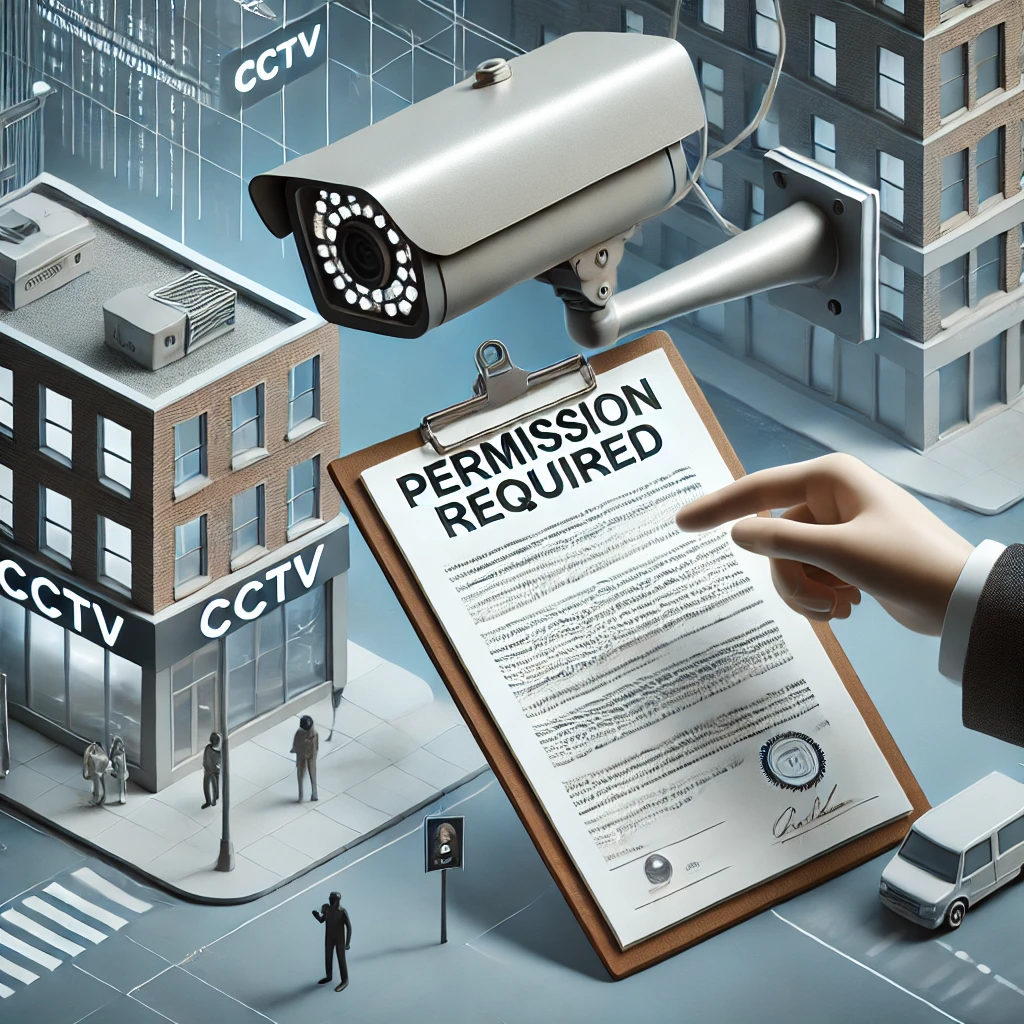Installing CCTV: Understanding Your Rights and Responsibilities
When it comes to securing your home, CCTV cameras play a vital role. However, before installing a residential security system, it’s important to understand the legal and practical implications. At AMAX Fire and Security, we aim to provide clear insights into whether permission is needed and how to install CCTV responsibly.
Do You Need Permission to Install CCTV at Home?
The General Rule
In most cases, homeowners in the UK do not require formal permission to install CCTV on their property. However, there are specific rules and guidelines to follow to ensure compliance with privacy laws.
Key Considerations
- Private Use: If your CCTV system only records activity within your property boundaries, you generally don’t need permission.
- Public Areas: If your cameras capture public spaces or neighbouring properties, additional legal considerations apply.
- Shared Properties: For flats or shared housing, consult with property management or co-owners before installation.
Understanding these factors helps you avoid potential legal issues while protecting your home.

Privacy Laws and Regulations
Data Protection Act 2018
If your CCTV system records areas beyond your private property, such as streets or neighbouring gardens, the Data Protection Act 2018 comes into play. This means:
- You must inform people that they are being recorded, typically with clear signage.
- Recorded footage should only be used for security purposes.
- Data must be stored securely and only retained for as long as necessary.
Human Rights Act 1998
This legislation protects individuals’ right to privacy. To comply:
- Avoid pointing cameras directly into neighbours’ windows.
- Minimise intrusion by adjusting camera angles and placement.
Local Authority Guidelines
Some local councils may have additional guidelines for CCTV installation. Check with your local authority for any specific requirements in your area.
Steps to Install CCTV Responsibly
1. Plan Your System
Determine your security needs and identify key areas to monitor. Consider:
- Entry points such as doors and windows.
- Vulnerable outdoor areas like gardens or driveways.
- Avoiding unnecessary coverage of public or neighbouring spaces.
2. Choose the Right Equipment
Select cameras that meet your requirements. Key features to look for include:
- High Resolution: Ensures clear footage for identification.
- Night Vision: Provides 24/7 surveillance.
- Weatherproofing: Essential for outdoor cameras.
- Remote Access: Allows monitoring via smartphone apps.
3. Inform Others
If your cameras capture areas outside your property, it’s essential to notify people. Use clear signs stating:
- CCTV is in operation.
- The purpose of the surveillance.
4. Install with Care
Position cameras to minimise intrusion while maximising coverage of your property. Ensure that:
- Cameras are securely mounted.
- Wiring is concealed to prevent tampering.
- Angles are adjusted to focus on key areas without overreach.
5. Maintain Your System
Regular maintenance ensures your CCTV system operates effectively. This includes:
- Cleaning lenses for clear footage.
- Checking connections and power supplies.
- Updating software for security and functionality.
Benefits of Residential CCTV Systems
1. Deterrence
Visible cameras act as a strong deterrent to potential intruders, reducing the likelihood of break-ins.
2. Evidence Collection
In the event of an incident, CCTV footage provides valuable evidence for law enforcement and insurance claims.
3. Peace of Mind
Knowing your home is monitored 24/7 gives you confidence and reduces stress.
4. Remote Monitoring
Modern systems allow you to check on your property from anywhere, enhancing convenience and security.
Common Questions About Installing CCTV
Can I install CCTV myself?
Yes, many systems are designed for DIY installation. However, professional installation ensures optimal setup and compliance with legal guidelines.
What if my neighbour complains about my cameras?
Address their concerns by:
- Adjusting camera angles to reduce intrusion.
- Explaining the purpose of your CCTV system.
- Providing reassurance about data protection practices.
Are there restrictions for listed buildings?
For listed properties, you may need permission from your local council to install CCTV. Always check regulations specific to your building.
Why Choose AMAX Fire and Security for Residential Security Systems?
At AMAX Fire and Security, we provide:
- Customised Solutions: Tailored CCTV systems to suit your home and compliance needs.
- Expert Installation: Ensuring optimal performance and adherence to privacy laws.
- Ongoing Support: Maintenance and upgrades to keep your system reliable.
Our commitment to quality and professionalism makes us a trusted partner for residential security solutions.
Safeguard Your Home with Confidence
Installing CCTV as part of a comprehensive residential security system is an excellent way to protect your home. By understanding the rules and following best practices, you can enjoy the benefits of enhanced security without compromising privacy. Contact AMAX Fire and Security today to learn more about our customised solutions for your home.





